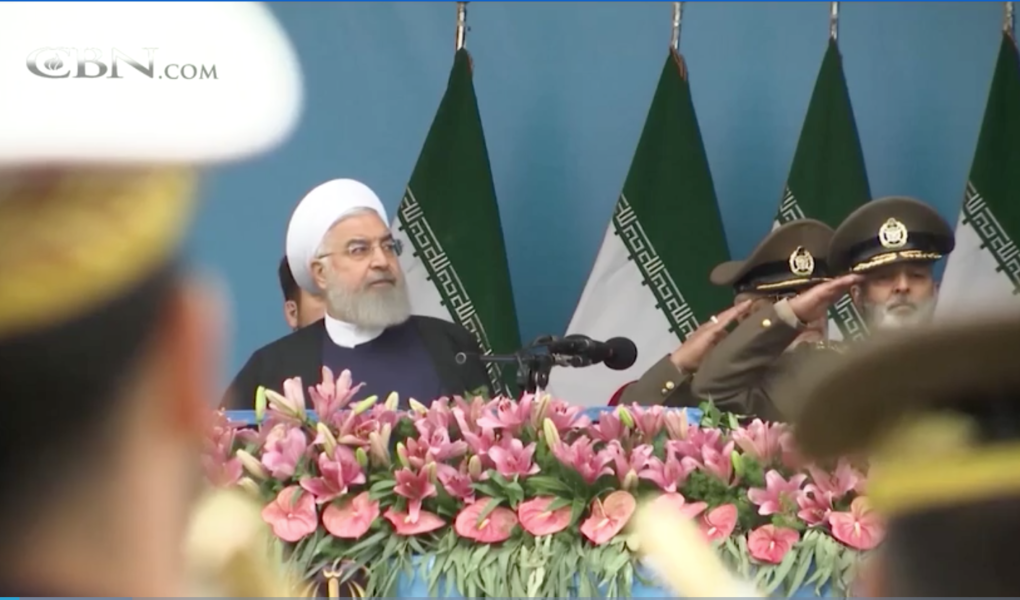How Close is Iran to a Nuclear Bomb? Closer Than You May Think
By Chris Mitchell
JERUSALEM, Israel – Perhaps the main threat facing Israel and the United States in the Middle East is a nuclear Iran.
Before the proverbial ink was even dry on the Joint Comprehensive Plan of Action (JCPOA) signed in 2015, also known as the Iranian nuclear deal, Iran had pushed its limits.
Israeli investigative journalist Ronen Bergman told CBN News that Iran has been slowly and consistently breaching the limits laid out in the nuclear deal.
“It’s doing it step by step,” Bergman said.
While misbehavior like that led President Donald Trump to pull out of the international agreement, Iran’s tactics seem to be working. The most recent report of the UN’s International Atomic Energy Agency revealed Iran now has 12 times the amount of low-enriched uranium allowed by the deal.
Retired Israeli General Yaakov Amidror says Iran has a three-pronged approach to a nuclear weapon: developing long-range ballistic missiles; enhancing enrichment capabilities and enriching large amounts of uranium that could be turned into weapons-grade level.
“In the capabilities that they have today with the new centrifuges that they have, they only have to make the decision. They have all the capacity to enrich uranium to this level,” said Ret. Gen. Yaakov Amidror.
According to the Institute for Science and International Security, “Iran’s estimated breakout time as of late September 2020 is as short as 3.5 months.” That time frame would be early 2021, but that element is just the first of two steps towards a nuclear weapon.
“The other point is to how to assemble a nuclear device,” said Bergman. “It’s not the same. How you create a device to start the nuclear chain reaction?”
That makes the major question: How long would it take for Iran to have a nuclear bomb?
Bergman believes if Iran ignores all international inspections and oversights, Iran can become fully nuclear “between 3 and 5 years.”
In April 2018, Israeli Prime Minister Benjamin Netanyahu went on prime-time television to unveil thousands of documents Israeli Mossad agents had taken straight from Iran’s “secret atomic archives.” His message was clear: Iran is lying about its nuclear aspirations.
“The archives gave us a clear picture of a very serious project which was very much advanced,” said Ret. Gen. Amidror.
Bergman, the author of Rise and Kill First, a definitive study of Israel’s Mossad, said that operation exposed Iran’s deception.
“After that operation, nobody can go back to the same JCOPA,” said Bergman. “Everybody understands that this was based on a lie.”
Bergman noted the Mossed also led an operation in July that set back Iran’s nuclear program for months or more.
“Someone was able to smuggle a huge tonnage of explosives into the main facilities for the assembly of centrifuges in Natanz and explode that and [create] damage of severe magnitude to the Iranian nuclear project. Which proves again that special operations and agents, boots on the ground, sometimes can be very good replacement for sending in troops, the airplanes, the armada, and starting a war,” he explained.
For Israel, the question of a nuclear Iran remains a daily exercise.
“Our philosophy is very clear,” said Amidror. We are getting [up] every morning; we are asking ourselves will tomorrow be too late? If the answer is no, we are going for another day. And when the minute will come … then we will have to ask ourselves, okay, what are we doing?”
It’s clear after facing the potential of a nuclear Iran, Israel has been preparing to answer that question for a long time.
Originally published in CBN News

